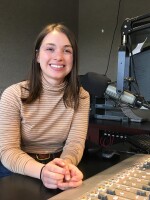The Park City Planning Commission again discussed the Woodside Park Phase II housing development, after the Park City Board of Adjustment sent it back to the commission to revisit their approval of one aspect of the development.
After approving the Woodside Park Phase II master planned development application in May, Park City Municipal, as applicant for the project, ran into a hurdle when one neighbor appealed the decision. Empire Avenue resident Doug Lee made four points in his appeal: that open space, setback, historic design review and parking requirements from the land management code were not met. The board of adjustment in June voted to send the project back to the planning commission due to what they perceived as an unwarranted reduction in setbacks. The planning commission can reduce setbacks in a master planned development if they find it necessary to provide “architectural interest and variation.”
The city as applicant made their case last week for the setback reductions, saying if the setbacks were at 25 feet, as outlined in the land management code, it would impact the massing of the buildings and the public walkway that cuts through the project. Kelly Morgan, the architectural designer for the project, argued 25-foot-setbacks wouldn’t allow for the townhouses on the edge of the project and instead would result in stacked flats closer to the sidewalk.
“We believe that the setbacks and the allowance to utilize these lesser setbacks greatly enhances our ability to design a better, more contextual project," Morgan said. "One that we can breakdown the mass and split them apart and make it much more pleasant and much more appropriate for the environment that it's in; much more compatible to the fabric of this neighborhood.”
Lee’s attorney, Nicole DeForge, argued the city hadn’t proved the setbacks to be necessary, rather that it would simply result in a nicer project. She says Lee isn’t opposed to affordable housing, but that the city hasn’t considered the impact to neighbors.
“When a project is not in our backyard, we tend to want to screw over the neighbors who are adjacent to that project in order to get as much perceived public benefit as we possibly can," DeForge said. "Let's not do that here. Let's not shove these setbacks for the project as close as we possibly can into the neighbors’ property lines, so that we can have a nice fire pit in the middle of a plaza with very wide walkways.”
Planning Commissioner Doug Thimm spoke to the city’s goal of providing 800 affordable housing units in town to build community and said this was a way to make progress on it.
“Part of the way we do that, I think, is densifying," Thimm said. "I think it’s about gives and gets.”
One member of the planning commission reiterated something she expressed at the commission’s initial decision. Commissioner Laura Suesser said, while she wants to see the Woodside Phase II project built at that location, she agreed with Lee that the setback reductions didn’t appear to be necessary.
“That very important public amenity running through this project—that walkway that's envisioned—can be accomplished without it being as wide as planned," Suesser said. "So, the setbacks requested, in my opinion, are not necessary and they don't comply.”
In the end, the commission voted 4-1, with Suesser voting against, to approve the setbacks for Woodside Park Phase II with an amendment to the setbacks on the Empire Avenue townhouses, from 20 feet to 25 feet.
DeForge told KPCW Lee planned to re-appeal the decision.



